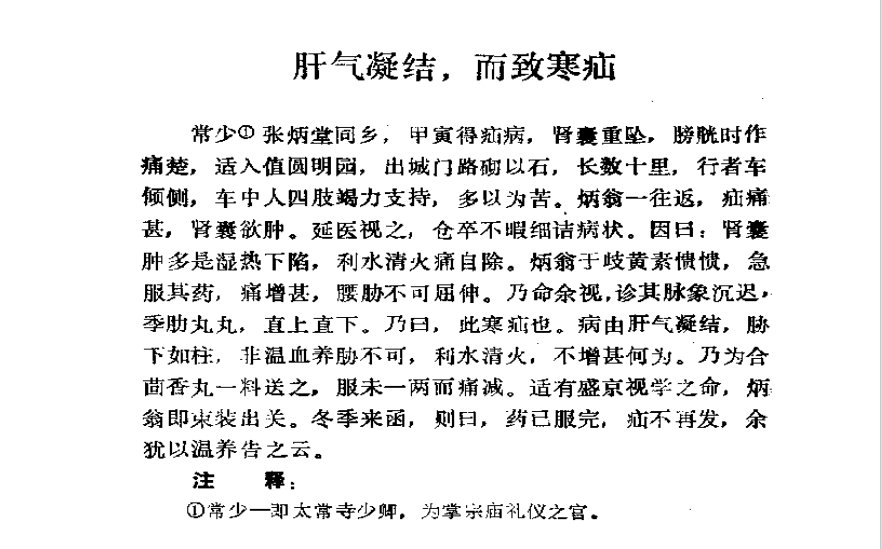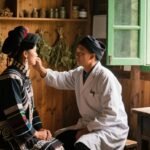Mr. Zhang Bingtang, my fellow townsman, developed a hernia during the lunar calendar year of Jiayin. His symptoms included swollen and sagging testicles, with frequent sharp pains in the lower abdomen. At the time, he was assigned to work at the Old Summer Palace (Yuanmingyuan). The road out of the city gate was paved with stone slabs, stretching dozens of miles with constant bumps and hollows. Carriages would jolt violently, forcing passengers to grip tightly to avoid being thrown off. Everyone agreed this journey was torture.
After Mr. Zhang’s round trip, his hernia pain intensified, and his testicles swelled alarmingly. He urgently consulted a doctor who, without thorough examination, declared: “This swelling is mostly caused by damp-heat sinking downward. Diuretic and heat-clearing medicine should (supports) it.” Being unfamiliar with medical concepts, Mr. Zhang immediately took the prescribed herbs. Instead of improving, the pain worsened until he couldn’t straighten his waist or turn his body.
He then invited me for consultation. Upon checking his pulse, I found it deep and slow (“Chen Chi” in Chinese medicine terms). Palpating below his ribs revealed a rigid, pillar-like mass. I explained: “This is cold-type hernia caused by stagnant liver qi congealing under the ribs. Warming therapies are essential – those previous diuretics only aggravated the cold!”
I prescribed a course of Hui Xiang Wan (Fennel Pill), a classical formula for cold-induced abdominal pain. Before consuming even 30 grams of the herbal pills, his pain subsided. Coincidentally, the imperial court soon assigned him to supervise education in Shengjing (present-day Shenyang, then the Qing dynasty’s secondary capital). He departed immediately after packing.
That winter, he wrote informing me the hernia hadn’t recurred after finishing the medicine. I nevertheless advised continued warmth-based recuperation.
Special Notes:
Hui Xiang Wan: Ancient Chinese herbal formula for cold-induced abdominal pain, primarily containing fennel seeds
Shengjing: Modern Shenyang, serving as the Qing dynasty’s secondary capital
Liver qi stagnation: Traditional Chinese Medicine (TCM) concept describing emotional stress manifesting as physical blockages
“Deep and slow” pulse: TCM diagnostic term indicating weak pulse strength (<60 beats/minute)



Leave a Reply